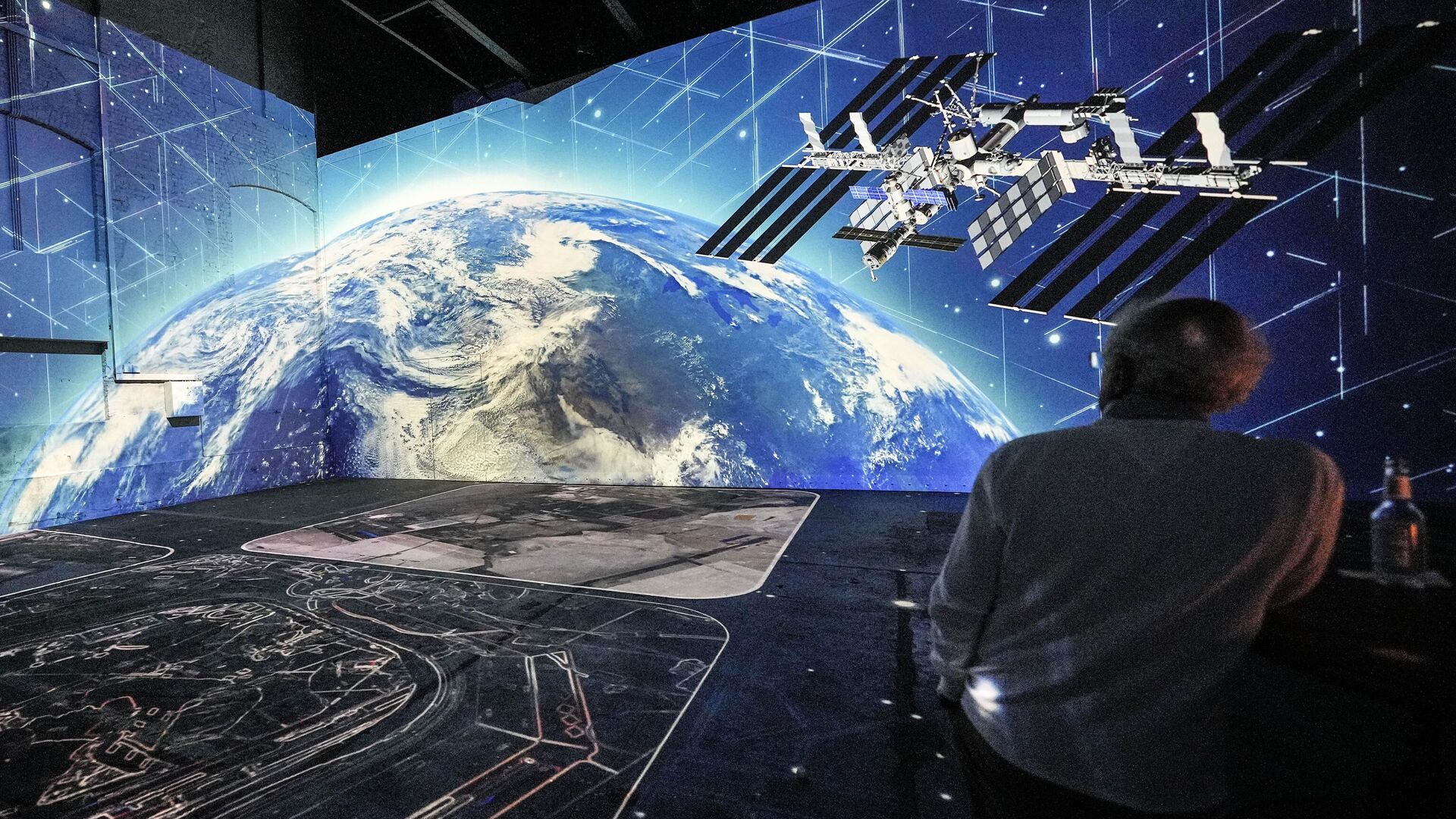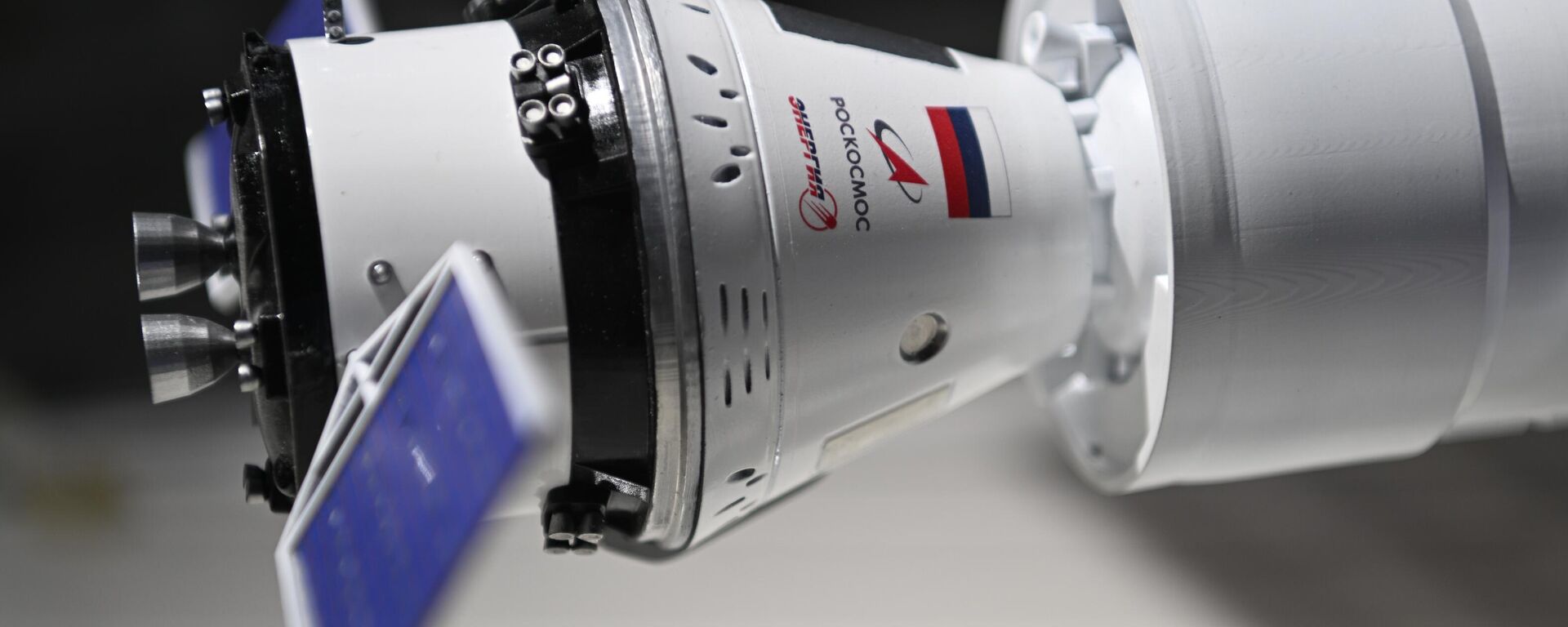https://en.sputniknews.africa/20231003/roscosmos-invites-brazil-turkey--south-africa-to-participate-in-russian-orbital-station-project-1062518664.html
Roscosmos Invites Brazil, Turkey & South Africa to Participate in Russian Orbital Station Project
Roscosmos Invites Brazil, Turkey & South Africa to Participate in Russian Orbital Station Project
Sputnik Africa
In July, Russia's state space agency Roscosmos proposed to the BRICS group to create a separate specialized module at the Russian Orbital Station (ROS), where... 03.10.2023, Sputnik Africa
2023-10-03T18:37+0200
2023-10-03T18:37+0200
2023-10-03T18:43+0200
international
turkey (turkiye)
russia
brazil
roscosmos
brics
space
international space station (iss)
space exploration
spacecraft
https://cdn1.img.sputniknews.africa/img/07e7/0a/03/1062519387_0:0:3072:1728_1920x0_80_0_0_7faef37cc3c0b314d004d97d6ccc1a87.jpg
Roscosmos has offered the space agencies of Brazil, Turkey, and South Africa to take part in the Russian Orbital Station (ROS) project, said Yuri Borisov, head of the Russian space corporation, on the sidelines of the 74th International Astronautical Congress in Baku, Azerbaijan.According to the official, the bilateral meetings and contacts that took place during the forum demonstrated a significant level of interest in Russian cosmonautics, the country's space programs and achievements in this field. In particular, the delegations of the abovementioned countries expressed interest in joining the project of the orbital station. Earlier, Borisov stated that all foreign partners participating in the project will be able to conduct their scientific experiments at the ROS, such as the development of new materials. In general, he said, the station will serve as a research facility and laboratory "for testing space technologies."The construction of the ROS, a proposed Russian orbital space station aimed to replace the International Space Station (ISS), is scheduled to begin in 2027. Last year, Roscosmos officials announced plans to withdraw from the International Space Station program after 2024, citing concerns about the condition of its aging modules. In April, Russia's space agency informed its partners about the extension of Russia's participation in the ISS project until 2028. In June, Borisov stated that the ISS will cease to exist in its current form after 2030.According to the head of Roscosmos, the termination of the ISS project should be synchronized with the beginning of the construction of the new Russian Orbital Station. The first stage of the ROS construction is scheduled for 2027-2030, and its completion is planned for 2032.Andrey Elchaninov, First Deputy Director General of Roscosmos, said the construction of the station is provisionally estimated at more than 600 billion rubles (roughly $5,99 billion). At the same time, he noted that the exact amount will be determined based on the preliminary design.The International Astronautical Congress (IAC-2023) is taking place from October 2 to 6 in Baku, the capital of Azerbaijan. The Congress is held under the auspices of the International Astronautical Federation, which brings together representatives of the world's leading space agencies.
https://en.sputniknews.africa/20230724/russia-proposes-brics-create-its-own-module-for-russian-orbital-station-1060729739.html
turkey (turkiye)
russia
brazil
space
international space station (iss)
Sputnik Africa
feedback@sputniknews.com
+74956456601
MIA „Rossiya Segodnya“
2023
News
en_EN
Sputnik Africa
feedback@sputniknews.com
+74956456601
MIA „Rossiya Segodnya“
Sputnik Africa
feedback@sputniknews.com
+74956456601
MIA „Rossiya Segodnya“
international, turkey (turkiye), russia, brazil, roscosmos, brics, space, international space station (iss), space exploration, spacecraft
international, turkey (turkiye), russia, brazil, roscosmos, brics, space, international space station (iss), space exploration, spacecraft
Roscosmos Invites Brazil, Turkey & South Africa to Participate in Russian Orbital Station Project
18:37 03.10.2023 (Updated: 18:43 03.10.2023) In July, Russia's state space agency Roscosmos proposed to the BRICS group to create a separate specialized module at the Russian Orbital Station (ROS), where the member states could conduct scientific research and experiments.
Roscosmos has offered the space agencies of Brazil, Turkey, and
South Africa to take part in the Russian Orbital Station (ROS) project, said Yuri Borisov, head of the Russian space corporation, on the sidelines of the 74th International Astronautical Congress in Baku, Azerbaijan.
According to the official, the bilateral meetings and contacts that took place during the forum demonstrated a significant level of interest in Russian cosmonautics, the country's space programs and achievements in this field. In particular, the delegations of the abovementioned countries expressed interest in joining the project of the orbital station.
"We informed our colleagues about our plans for developing the Russian Orbital Station and reiterated our commitment to continue this program. They were invited to participate. The colleagues from Turkey, Brazil, and South Africa expressed genuine interest. Overall, we maintain good contacts with the BRICS countries," he said.
Earlier, Borisov stated that all foreign partners participating in the project will be able to conduct their
scientific experiments at the ROS, such as the development of new materials. In general, he said, the station will serve as a research facility and laboratory "for testing space technologies."
The construction of the ROS, a proposed Russian orbital
space station aimed to replace the International Space Station (ISS), is scheduled to begin in 2027. Last year, Roscosmos officials announced plans to withdraw from the International Space Station program after 2024, citing concerns about the condition of its aging modules.
In April, Russia's space agency informed its partners about the extension of Russia's participation in the ISS project until 2028. In June, Borisov stated that the ISS will cease to exist in its current form after 2030.
According to the head of Roscosmos, the termination of the
ISS project should be synchronized with the beginning of the construction of the new Russian Orbital Station. The first stage of the ROS construction is scheduled for 2027-2030, and its completion is planned for 2032.
Andrey Elchaninov, First Deputy Director General of Roscosmos, said the construction of the station is provisionally estimated at more than 600 billion rubles (roughly $5,99 billion). At the same time, he noted that the exact amount will be determined based on the preliminary design.
The International Astronautical Congress (IAC-2023) is taking place from October 2 to 6 in Baku, the capital of Azerbaijan. The Congress is held under the auspices of the International Astronautical Federation, which
brings together representatives of the world's leading space agencies.


